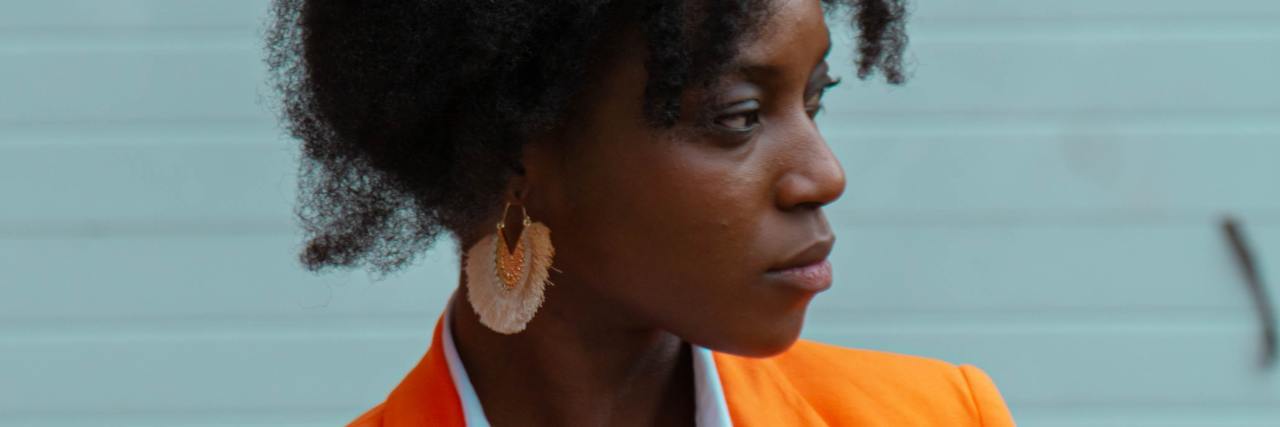How Systemic Racial Injustice and Trauma Leads to Bad Health Outcomes for Black People
Racism is killing us. According to the Office of Minority Health, “African Americans have 2.3 times the infant mortality rate as non-Hispanic whites.”
Regarding the coronavirus (COVID-19) pandemic, John Hopkins University states that, “while Black Americans represent only about 13% of the population in the states reporting racial/ethnic information, they account for about 34% of total Covid-19 deaths in those states.”
What is all this about?
Plainly put, Black people are not given equal access to resources and social programs that make good health outcomes possible. The burden of racism is mentally and physically oppressive and makes it hard to bridge the gap between us and those who are not experiencing racism. This makes Black people sicker and, due to no fault of their own, living less healthy lives than their white counterparts.
Black people suffer and no community public health campaign is going to change it. The problems are systemic and broad. They are ingrained in our psychology as a nation and they will be inherently hard to root out.
Ongoing inequalities in social causes that affect Black people are the result of all kinds of access to care issues, which are interrelated with a range of quality-of-life risks and outcomes.
It is infuriating to live in a society when at every turn, the walls are stacked against you. Where no matter where you focus, there is a blind spot. Without systemic interventions, nothing is going to change. Black people will continue to have bad health outcomes, will continue to die en masse from COVID-19 and other chronic illnesses.
We are disproportionately affected in the following sectors:
1. Climate change.
Consider Hurricane Katrina and how Black people died at higher rates because of lack of investment in infrastructure (levees) in their communities.
2. Housing discrimination.
Public housing is confined to poor communities with a lack of resources such as good schools, public transportation, safe neighborhoods and adequate culturally appropriate health care resources.
3. Accessible and culturally appropriate health care.
Medical schools and psychology programs are not training Black people in statistically effective numbers to address the gap in resources of Black doctors and psychologists to meet the demand of the communities and to provide culturally appropriate services. Also, according to NPR and Manhattan Institute, “the average non-white school district receives $2,226 less per student, and the persisting achievement gap means Black students are less likely to attend college, thus reducing their lifetime earnings by 65%.”
4. Lack of quality education.
Lack of a quality education leads to a gap with peers that may never be bridged, a gap that results in less wealth and access to high-paying jobs which may come with high-quality health care.
5. Community oppression.
The stress of oppression in one’s community can be very mentally straining and cause numerous mental problems for the Black person. The impact of oppression is also what leads to poor health outcomes.
6. Lack of access to wealth building.
Black people are paid disproportionally less than their white counterparts doing equal work with equal experience.
7. Family income inequality.
The average family spends 11% of yearly income on out-of-pocket health care costs, such as office visit copays, prescription drugs and surprise or out of plan medical bills. The average Black family spends 20% of their income annually on these costs. This kind of disparity leads to economic distress that leads to further bad health outcomes.
8. Public perception hurting interventions.
The problem of systemic racism is bigger than most people consider even after the high death toll with COVID-19.
The Robert Wood Johnson Foundation studied attitudes and views around health equity as it relates to COVID-19. The report finds that when asking about systemic racism and it as a barrier to good health outcomes only 42.2% of survey respondents understand systemic racism to be an issues in people of color having poor health outcomes, 32.9% disagree and nearly 24.5% are neutral. Black respondents, by 36 percentage points, believe systemic racism affects the health of people of color.
If we do not recognize systemic racism as a problem, we will be powerless to address it or the health inequity it causes. More education is necessary to raise awareness and inform others how they can make a difference.
I ask you to consider what you can do to make a difference. What steps can you take to be an ally in this injustice? Sure, you can march, but does that really cost you any social capital? Any personal expense?
Here are some things you can do to make a difference:
Contact your legislatures about more funding for community health centers, education, affordable housing and criminal justice reform.
Lead boycotts of banks that have discriminatory banking practices.
Organize your faith community to form an alliance with a faith community in a Black community and champion the cause they see as most important (and fight the urge to take over, lead or judge).
Educate yourself on being anti-racist and on systemic inequalities and what role you are playing in them.
There is so much that can be done and needs to be done. You have the power to make a difference. Do not just throw your hands up in defeat. Take action to make a meaningful difference.
Photo by Etty Fidele on Unsplash

